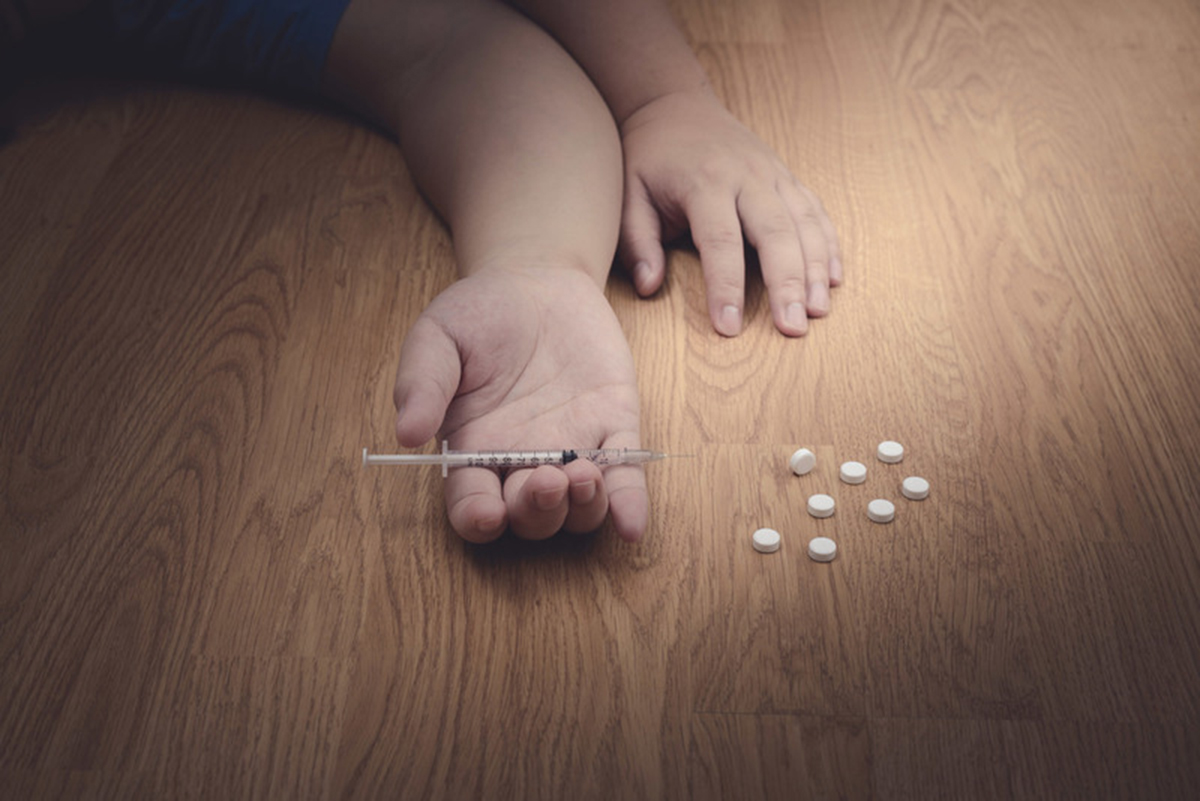If you are a single parent and your ex — your child's or children's other parent — is addicted to alcohol or drugs, you'll face some tough decisions. Many of them are likely to be the kind that requires a lawyer or social worker, and as a health site, we can't address those. We can, however, delve into two questions you'll face. How do you talk to your kids about your ex's substance abuse, and what can you do to educate them about alcohol and drugs so they don't become addicts themselves?

How to discuss your ex's addiction with your children: Some tips
You can:
- Ask your child how they feel and listen to them.
- Explain how addiction changes people, temporarily at least, and that their other parent wasn't always this way. Being addicted doesn't make them a bad person, but it can make them very difficult to have a positive relationship with. That sucks, but the negative parental behaviors your child is exposed to aren't in any way the child's fault.
- Answer questions about what causes addiction in general, and share information about the circumstances that concretely led to your ex's addiction.
- Where possible, give your children the freedom to not be around the other parent during especially difficult periods, and let them choose what level of contact they prefer.
- If you have a shared custody arrangement or a visitation arrangement, put a safety plan in place. If your ex is under the influence, don't leave your children with them unsupervised. Make sure your children can always contact you while they are with your ex, in case your ex starts using while your children are with them. If they are teens, you can instruct them to leave and come home right away.
- Addicts can be very good at manipulating people. If your children are teens, make sure to share your own experience with this so that the parent will not try to get money from them.
What can you do to prevent alcohol and drug abuse in children?
Children of parents with a substance abuse disorder have, research reveals, more than twice the risk than others of facing similar struggles themselves. That risk is higher if both parents have substance abuse issues, if the parental alcohol or drug addiction is accompanied by mental illnesses such as depression, and if children face significant daily stresses in their lives.
If your ex is addicted, but you're providing a stable, loving, addiction-free home, you're already doing a lot to minimize your children's future risk of addiction.
- Talk to your children, even at an early age, about addiction and its risks, in a lot of detail. This can include sharing that drugs (and for some people, alcohol) can feel good in the short-term, and that many people think they can remain casual users, but once you start, it is often very difficult to stop. You can say that, at some point, someone will offer your child drugs. Saying "no" every time is the best way to ensure they don't become addicted. People may become addicted at vulnerable points in their lives, but substance abuse will not solve any problems; rather, it will only add to them.
- Addiction has a genetic component. Children of at least one addicted parent should seriously consider a straight-edge lifestyle. Discuss this with your kids.
- Kids who have good self-awareness, communication skills, impulse control, and problem-solving skills are less likely to become addicted, research has shown. These are skills every parent can work on with their children, starting at a very young age.
- A strong bond with your children — and an active relationship during which you spend a lot of time together — is another strong preventative factor.
- An environment in which addiction is normalized is a risk factor, on the other hand. If you live in a community where this is the case, try to leave it behind if you can — and if you can't, provide your children with opportunities for contact with people who do the opposite of normalizing addiction. This may come through sports, a school that doesn't have drug problems, and contact with relatives who aren't addicted and are strongly opposed to substance use.


Your thoughts on this